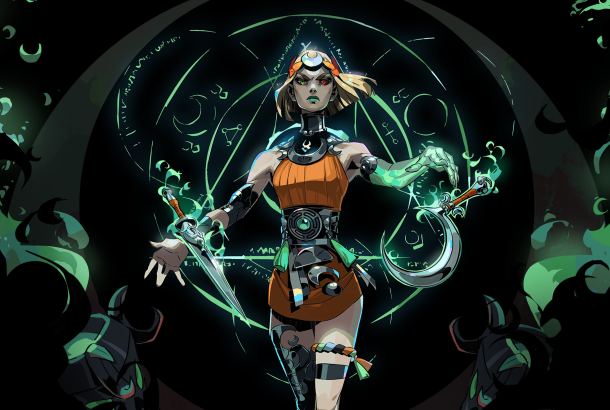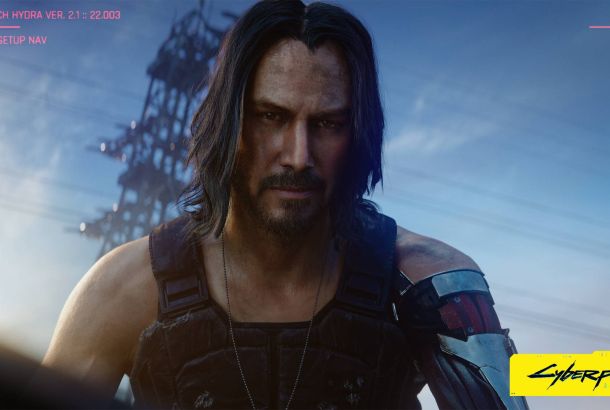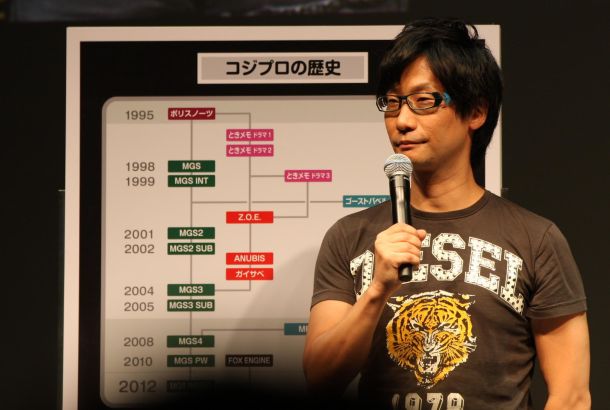Resident Evil 4 and Dead Space: Perhaps the most compelling case yet for remakes
By Anna Pirie

If you’ve even glanced at the video games industry in the last couple of years, you’ll have noticed the recent surge in companies remaking some of their older titles. A number of classic games have faced a modern remake with modern graphics, handling, and mechanics in the last five years – think of the remakes of Final Fantasy VII, Shadow of the Colossus, and System Shock.
Indeed, two of this year’s biggest titles have been remakes: Resident Evil 4 (2023) and Dead Space (2023). And while it would be easy for me to denounce them as simple cash grabs, I can’t help but be compelled by them, as each game manages to transform the source material that it remakes.
The act of remaking and updating older works of art is not new for any art medium, yet repurposing old content has become a real hot topic recently. Has anyone else noticed the overuse of sampling in modern music or the current prevalence of Y2K fashion and vintage shopping? Even the recent Barbie film makes use of 50s fashion and architectural aesthetics. Every artistic medium has been chasing the heights of the past as of late.
Games industry giant Capcom has, in many ways, led the charge on this front, remaking their bestselling Resident Evil horror series. Beginning in 2002 with Resident Evil 1, Capcom later moved on to remake Resident Evil 2 and Resident Evil 3 in 2019 and 2020, respectively, to massive acclaim and high sales.
Yet, through all this, there was always the underlying question of if they were going to even contend with remaking their 2005 release, Resident Evil 4. With all of the influence and prestige of Resident Evil 4, the direct sequel to RE2, remaking the game nearly 20 years after its original release is no mean feat. Many argued that the original need not be touched at all; it still handles better than most modern titles and is available on the majority of platforms.
The game was, of course, released anyway. Some might call this a greedy move – and, to an extent, the act of remaking a classic like this absolutely is – but the game still reviewed and sold very well. Seriously, look at the list of review scores compiled on the game’s Wikipedia page. Given the game’s intensely 2000s aesthetic, it actually fits right into the current culture of Y2K nostalgia.
And it is, of course, really good – it’s Resident Evil 4. Slick shooting, perfect pacing, plenty of enemy variety, and a near-perfect visual aesthetic to boot. Being pursued by Los Ganados as the hunky-yet-genuine hero Leon Kennedy has never felt so good. This is not solely a graphical upgrade; there are also mechanical alterations that improve the source material. The introduction of the new knife economy is a masterful change that I can only struggle to emphasise how good it feels. Players are now forced to consider whether to use their limited knives to finish off an enemy before they transform into something nastier, to save them for parrying – yes, parrying is now in Resident Evil! – or to get another enemy off your back as they grab you from behind.
Enemies are now more proactive. While the original title didn’t allow you to move while shooting, the remake gives you that freedom of movement – which is nice, until you realise the remake’s enemies are now also granted more freedom of movement. Los Ganados will now sprint over to your location in massive groups, giving you very little time to breathe. It genuinely feels at times like the entirety of Spain is mobilising with the singular purpose of taking you down.
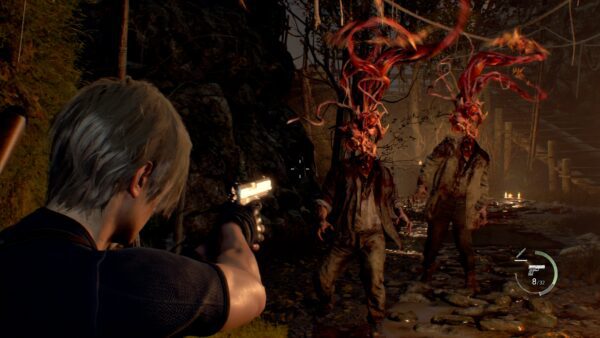
It’s a delicate balance between the action and horror elements, and some obvious horror markers are implemented. No punches are pulled when the game’s showing some nasty body horror or with other blood-slick cult imagery. Even in the late game, watching the Plagas insects burst from another writhing corpse was shiver-inducing.
Some of the silliness of the original’s writing is retained: Leon’s awful, cheesy one-liners can only be matched in campness by his inexplicable need to backflip away from danger. Elsewhere, writing changes are made to make the story actually make sense, properly characterise, and remove the original’s inexplicable misogynistic tendencies. While I’ll miss some of the more ridiculous features that have been removed – Zoom calling your nemesis, anyone? – the majority of writing alterations are definitely for the better. Every character now features some solid bits of writing and characterisation, alongside a new theme concerned with human change.
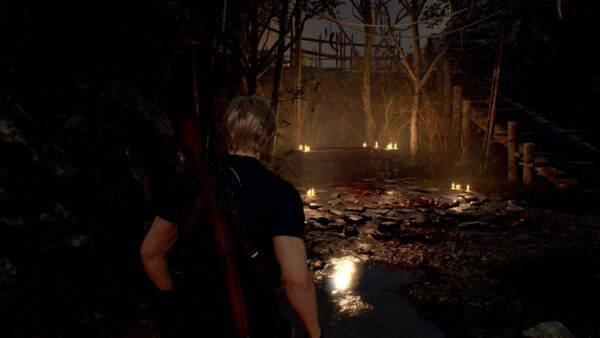
Dead Space was a game obviously inspired by RE4. In an interview with Dead Space developers Ben Wanat and Wright Bagwell, the two admit their influence: “It’s pretty obvious when you play Dead Space, to look at it and go, ‘Yeah, it’s almost like they decided to make Resident Evil 4 in space,’ which is exactly what we were doing.” It’s a game that also shamelessly borrows from other 2000s horror as well; many of its scariest moments, featuring a sort of hallucinatory non-reality, could be taken right out of a Silent Hill title.
As with the RE4 remake, the Dead Space remake is forced to prove why it exists. The original title, released a mere 15 years ago, still looks nice and plays relatively well. Dead Space does not really claim the title of ‘classic’ in the same way that RE4 does either – so why bother remaking it at all? Aside from the money aspect, of course.
To start simply, this remake is a visual and audible treat for horror fans. Seemingly derived from Ridley Scott’s Alien, the aesthetics of Dead Space‘s doomed mining ship on which the game takes place, the USG Ishimura, do a lot of heavy lifting in upping the fear factor. You’ll inevitably be spending a lot of time in claustrophobic, windowless hallways of sweaty, oily metal. It must also be stated that the audio work in this remake is nothing short of genius: mechanical whirring and clanking, meshed with the garbled, inhuman speech of a broken intercom – it’s all a real assault on the senses, even without the screeching of the alien necromorphs.
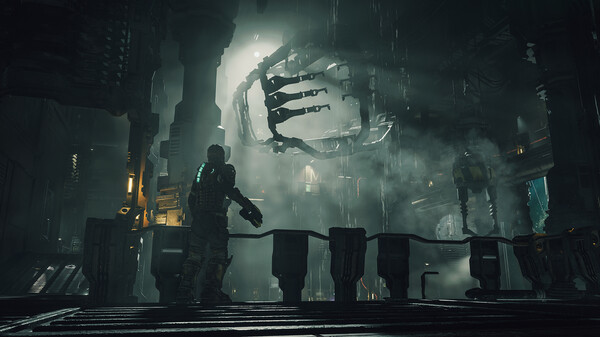
And what a horrific addition these aliens make! The bloodied words marked on a wall early in the game ‘CUT OFF THEIR LIMBS’ reveal one of the game’s most disgustingly delicious mechanics: a ‘peeling system’ that allows you to disable enemies. Dead Space‘s necromorphs will stop at nothing to tear apart protagonist Isaac, meaning the only real option to stop them is literally tearing them apart limb from limb. Situations would occur where I would get spooked by an enemy I was sure I had stopped by cutting off its legs, managing to scrape up behind me and take a chunk out of my legs.
As there was with RE4, there are some alterations made to the source material. Overhauled weapons, graphical upgrades, and Isaac’s newfound chattiness – given that he was originally a silent protagonist – all work wonderfully together. One of the game’s more sinister changes is the introduction of the ‘Intensity Director‘, where the game keeps track of your gameplay to stop you from ever feeling at ease. Exploring a quiet area? Enemies will suddenly burst out of a grate to keep you on your toes. Another excellent addition is the moments where Dead Space forces you to choose your personal brand of suffering: fight in the dark or with limited oxygen and hearing? It’s a choice that changes nothing about the game’s actual outcome but works on a more granular level to brand you responsible for your own misery.
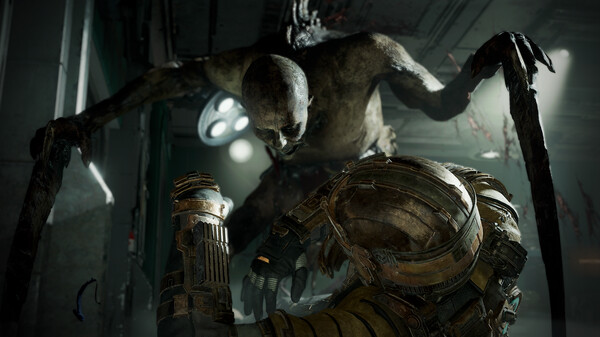
These are games that grapple with similar subjects; the monsters faced both by Leon and Isaac are strikingly familiar in their horror. Dead Space‘s narrative alterations include the horror of Isaac’s allies seeing their dead loved ones in the faces of the necromorphs. Their alien shrieks can be at times indistinguishable from the death-rattles of the ship’s remaining crewmates, their shambling eerily reminiscent of an injured human’s movement. A feature of the original title, Isaac’s own diegetic health bar is visible up the spine of his spacesuit – reminiscent of the visible bones on the necromorphs he dismembers.
Similarly, Leon struggles with the same blackouts and visions that plague the Ganados. His own humanity is mirrored by the accounts of dead or transformed characters – a mid-game character represents the sort of villain that Leon could easily become himself, had he been influenced even slightly differently by the events of RE2.
It is ultimately the dramatic changes to these games through the format of remaking them that justify, to me, why these remakes exist. When paired with their original counterparts, the remade versions appear like fully realised versions of what the developers were trying to make in the 2000s. Every alteration is made in service of the original title’s visions, whether it be through amping up the horror and stress or more nuanced writing changes in service of an overall theme or idea. I might still be a little sceptical of the nature of remakes, but I think Dead Space and Resident Evil 4 have managed to prove to me that remaking material can be for artistic good.
